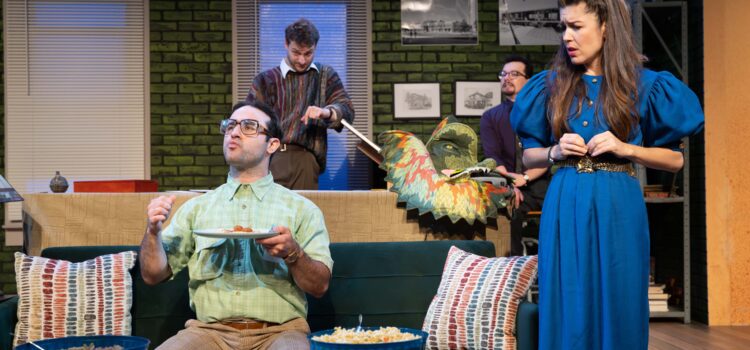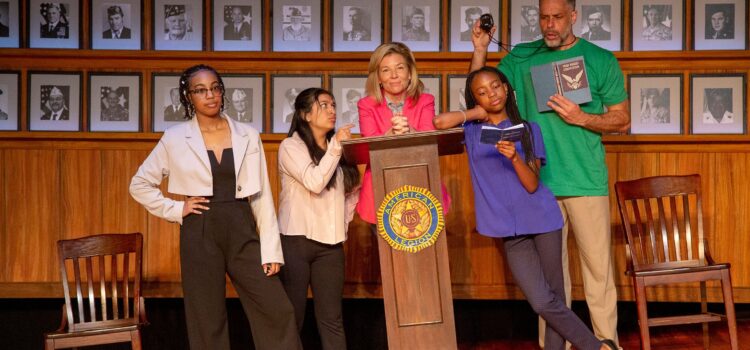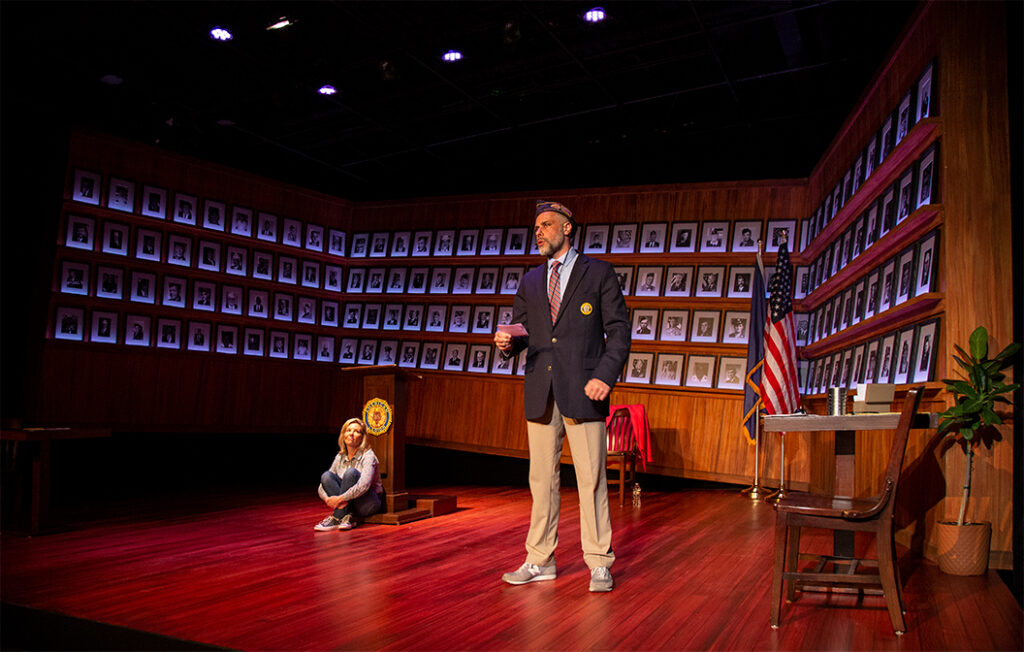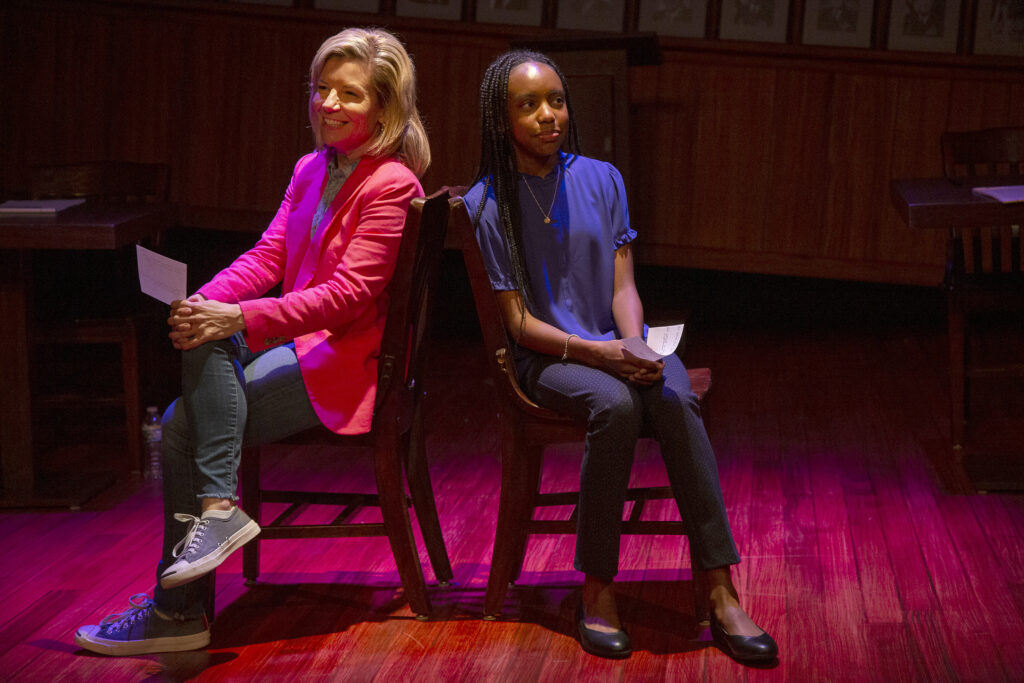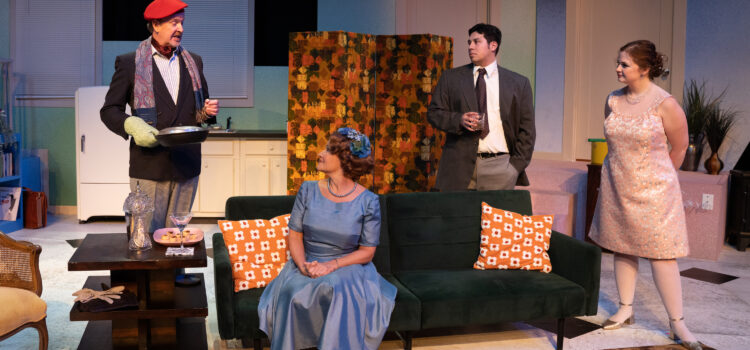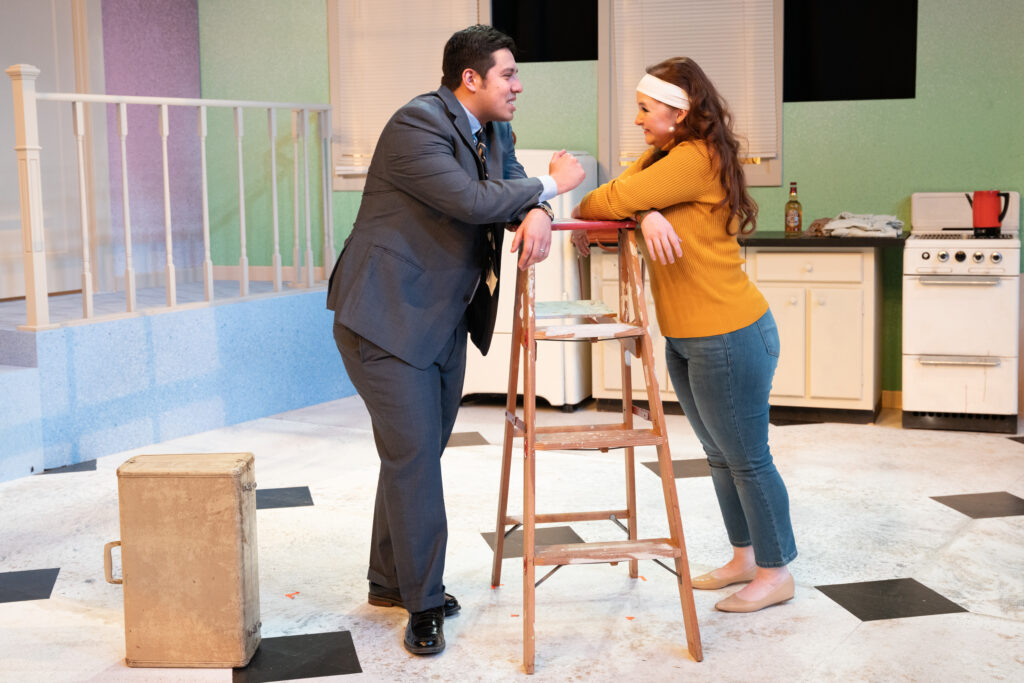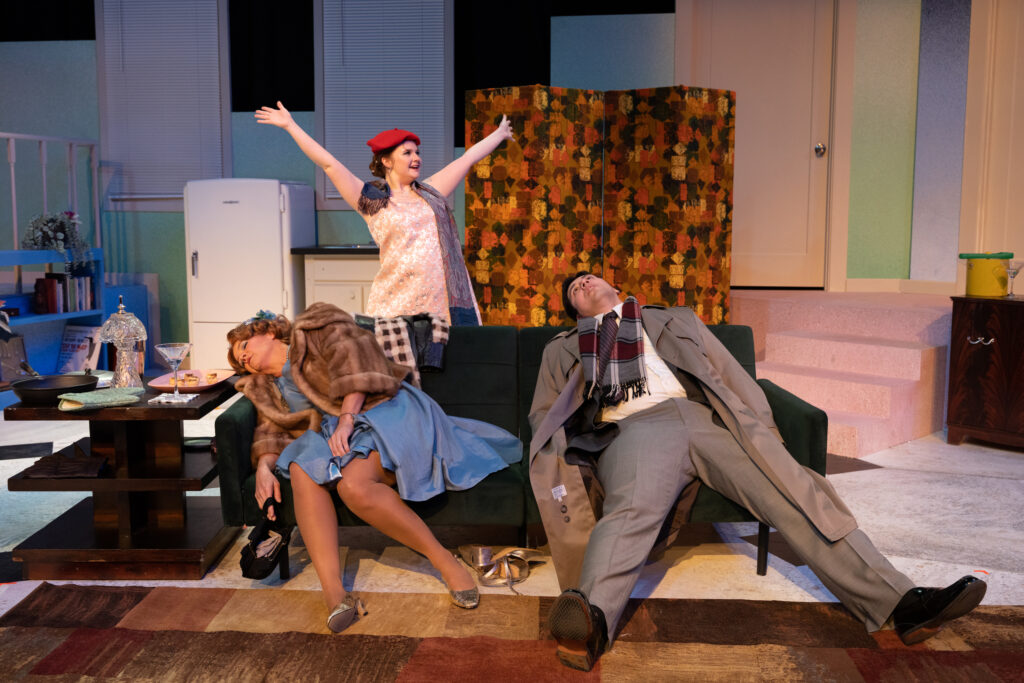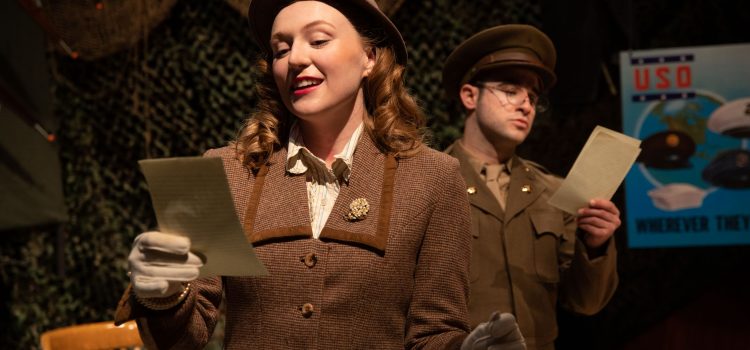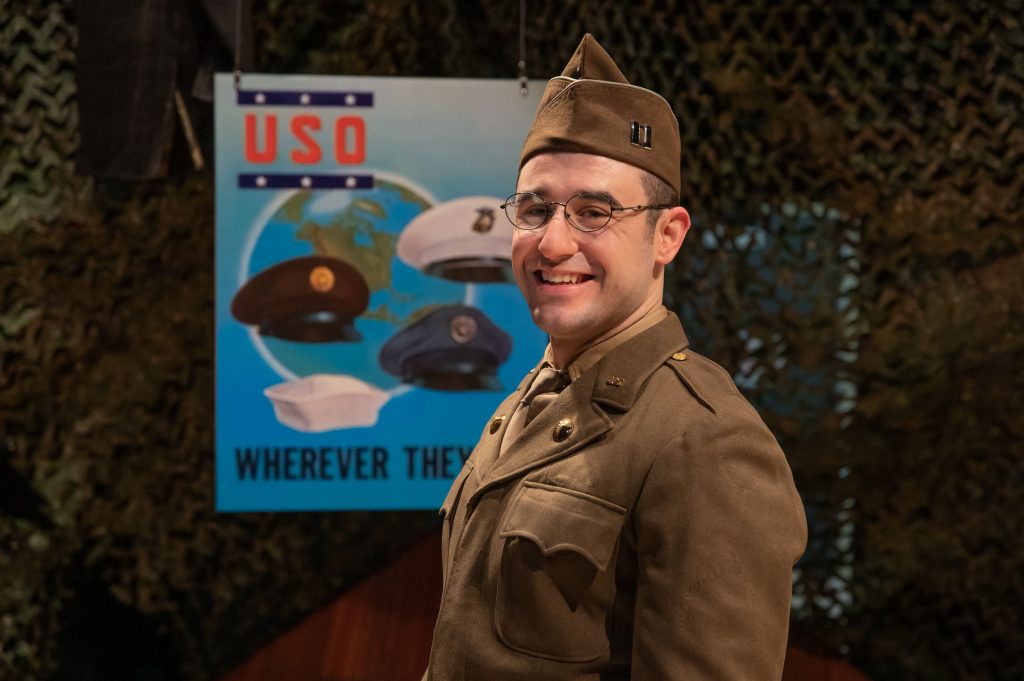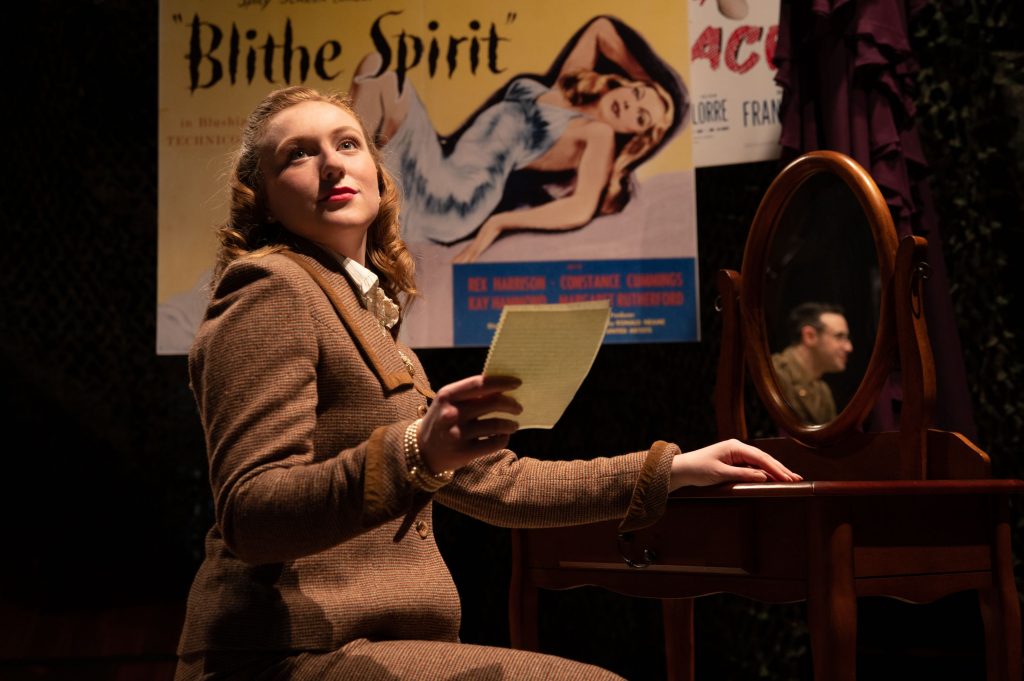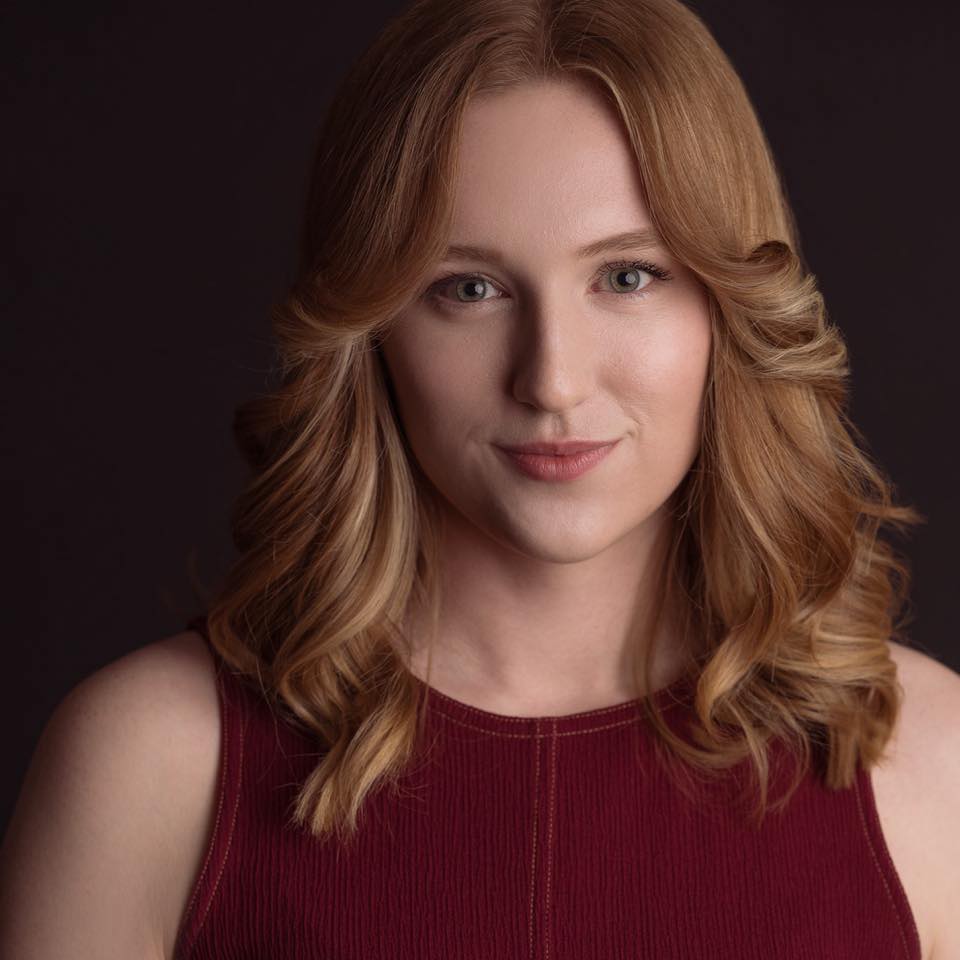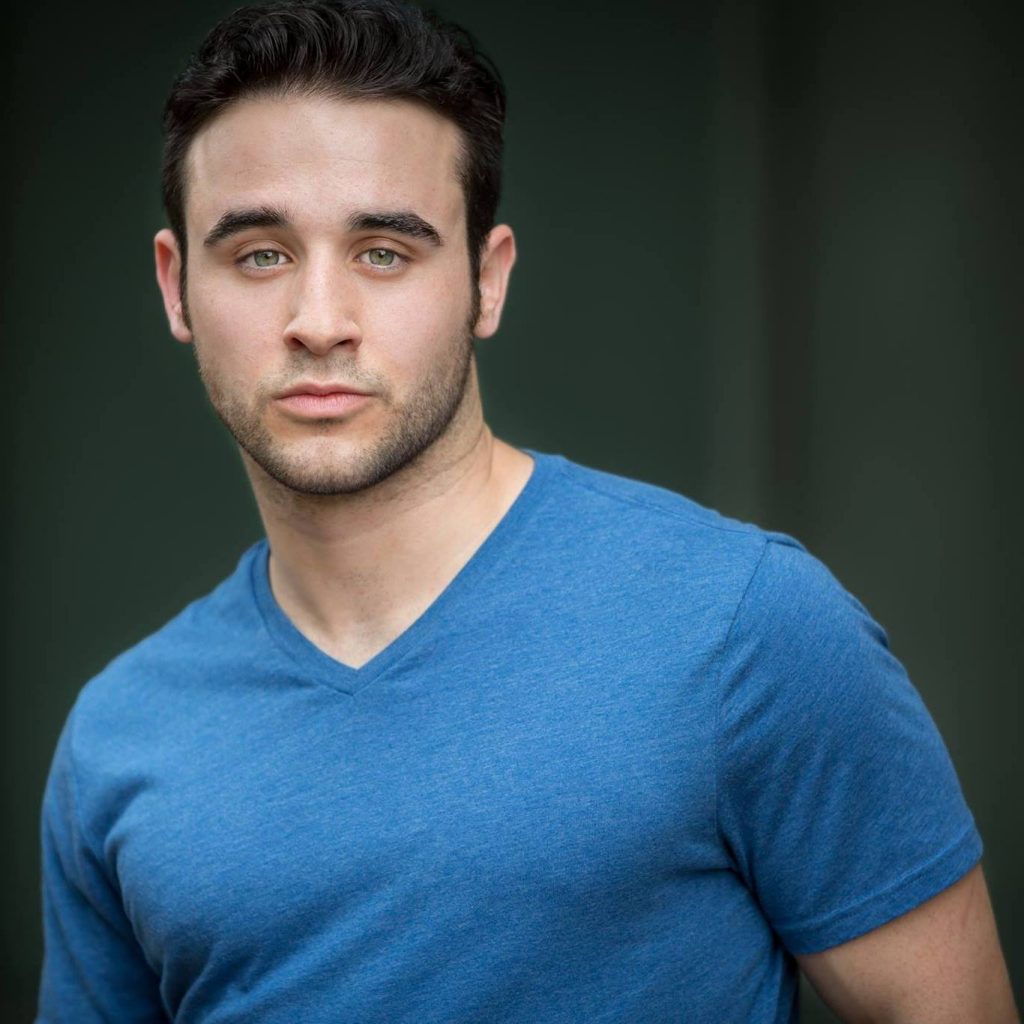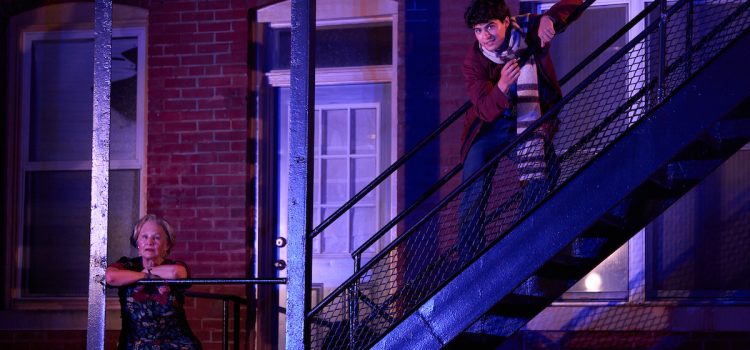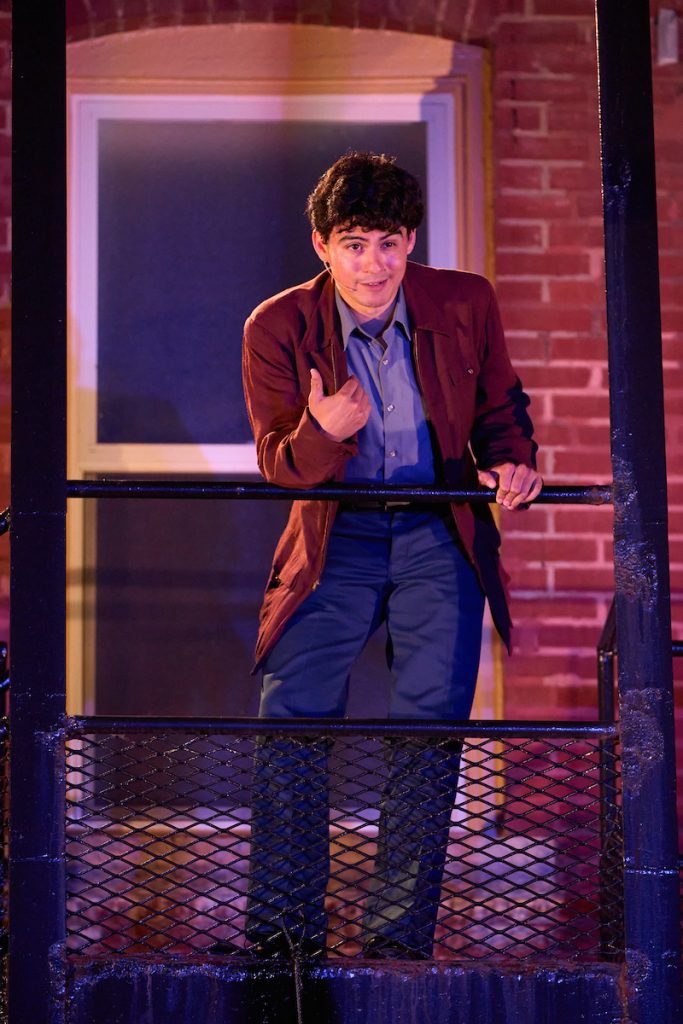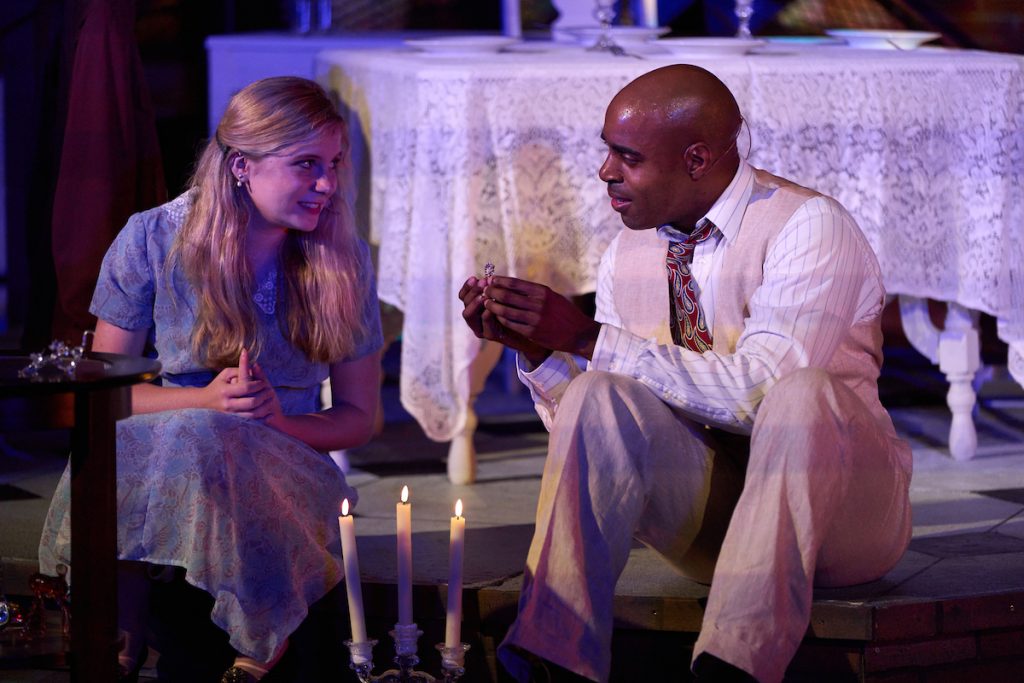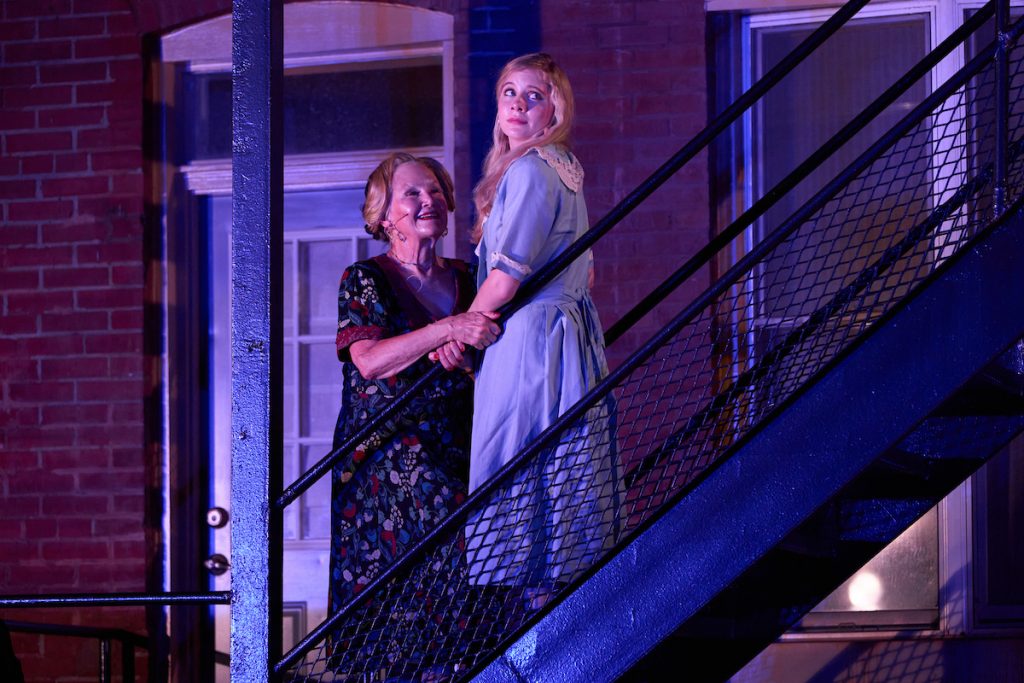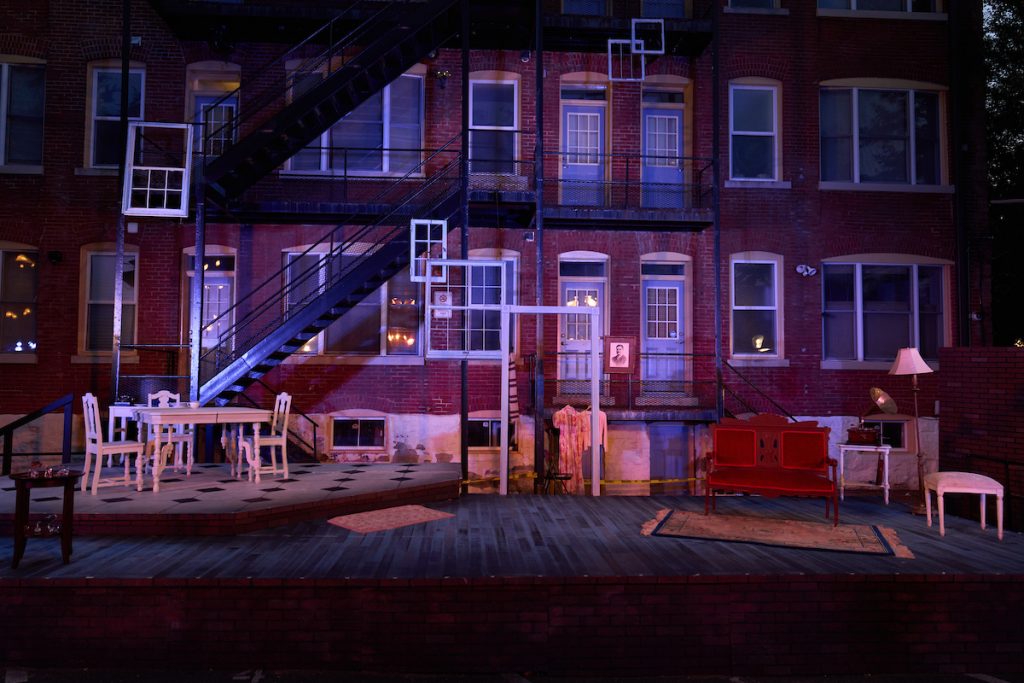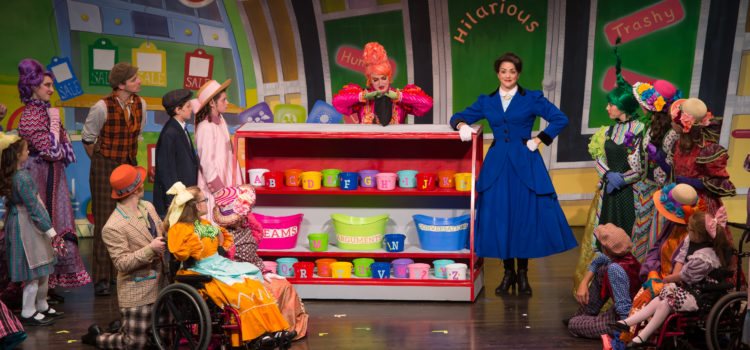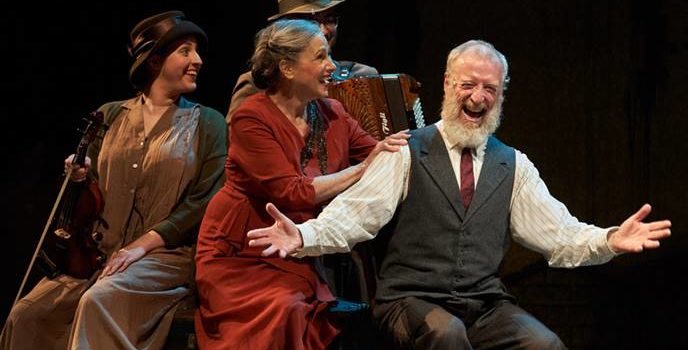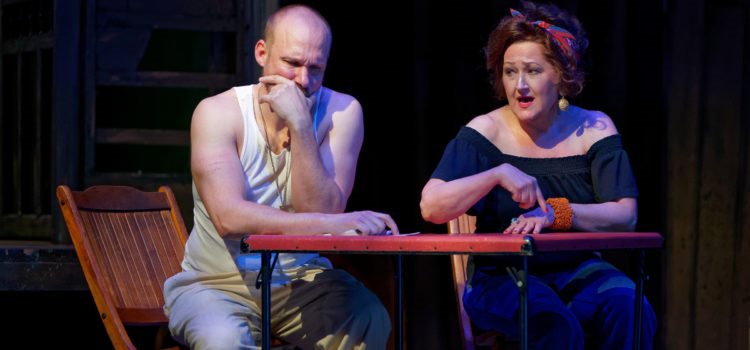By Lynn Venhaus
The laughs come in waves as wackiness ensues in “The Nerd,” a fizzy farce that showcases a nimble seven-member cast at their best.
Set in architect Willum Cubbert’s bachelor apartment in Terre Haute, Ind., in November 1981, what starts out as a typical drawing room two-act play soon turns into an outrageous comedy of manners that’s at once timeless and old-fashioned — but in a charming early ‘80s way. (Answering machine messages are a part of the humor).
Now on stage at the Strauss Black Box Theatre in the Kirkwood Performing Arts Center, the Moonstone Theatre Company’s fleet production accents the laugh-out-loud circumstances and plays up the absurd character traits in playwright Larry Shue’s clever classic.
As played by Oliver Bacus, Cubbert is an anxious people-pleaser. His two best buds are a snobby theater critic named Axel and an ambitious ‘weather girl’ named Tansy (also former girlfriend), who are moving along with their careers while he’s, well, ‘stuck in second gear’ to use The Rembrandts’ lyric to “I’ll Be There for You” (aka the “Friends” theme song).
And like that ensemble that just clicked together, Bacus, Bryce Miller and Bridgette Bassa are a tight trio, effortlessly conveying a realistic friendship and establishing their distinct personalities as the unusually named Willum, Axel, and Tansy.
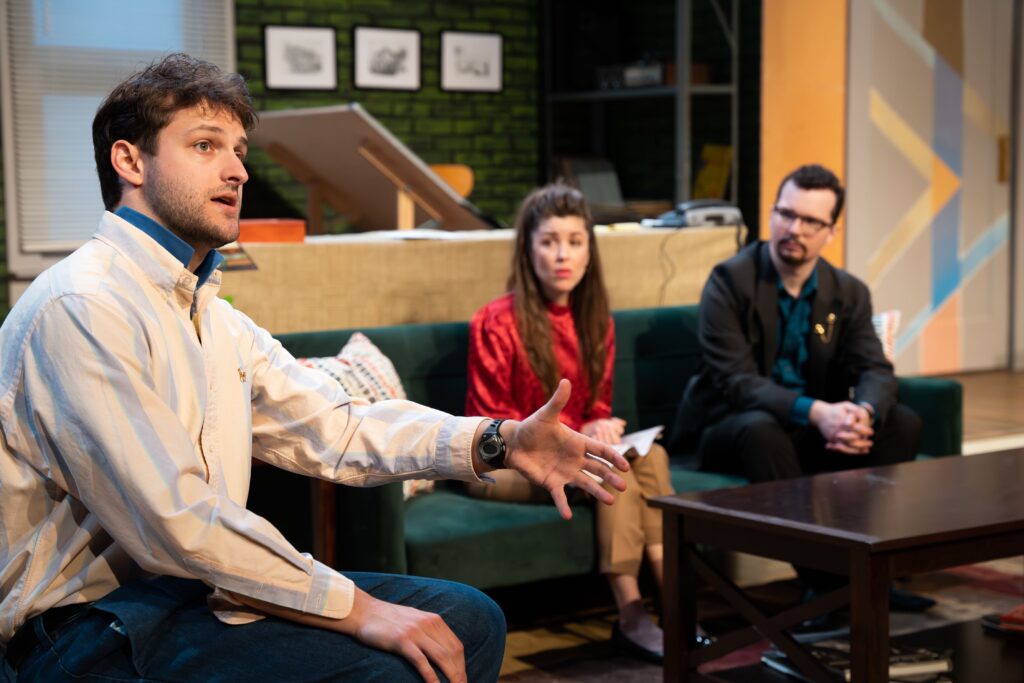
Miller adds the sour and Bassa brings the sweet to the mix. Miller superbly lobs sarcastic one-liners and keeps the disdain brewing as he demonstrates his adroit comedic skills.
Bassa, who has been memorable in such dramatic roles as the rebellious niece Jean in “August: Osage County” and as Billy’s girlfriend Sylvia in “Tribes,” both at St. Louis Actors’ Studio, shows her comedic chops again after appearing in “Grand Horizons” at Moonstone in March.
Noteworthy is her agility during back-and-forth trips between the kitchen and the living room while carrying food, keeping the show’s fast pace on track. And she is stylish encapsulating the typical early ‘80s chic career woman look by costume designer Michele Siler, along with the requisite big hair.
Willum’s concerned friends think he is too nice of a guy, and they encourage him to have more of a backbone because those habits have affected his decision-making. Nevertheless, he is trying to advance his career and persuade Tansy to resume their relationship and not move for a job elsewhere.
Ever loyal, Willum, a Vietnam War veteran, has talked about what he owes fellow soldier Rick Steadman for saving his life. During his ‘Nam service, he was seriously wounded, and while he never met the good Samaritan Rick, he feels indebted to him. In a letter, he wrote that as long as he was alive, Rick “will have somebody on Earth who will do anything for you.”
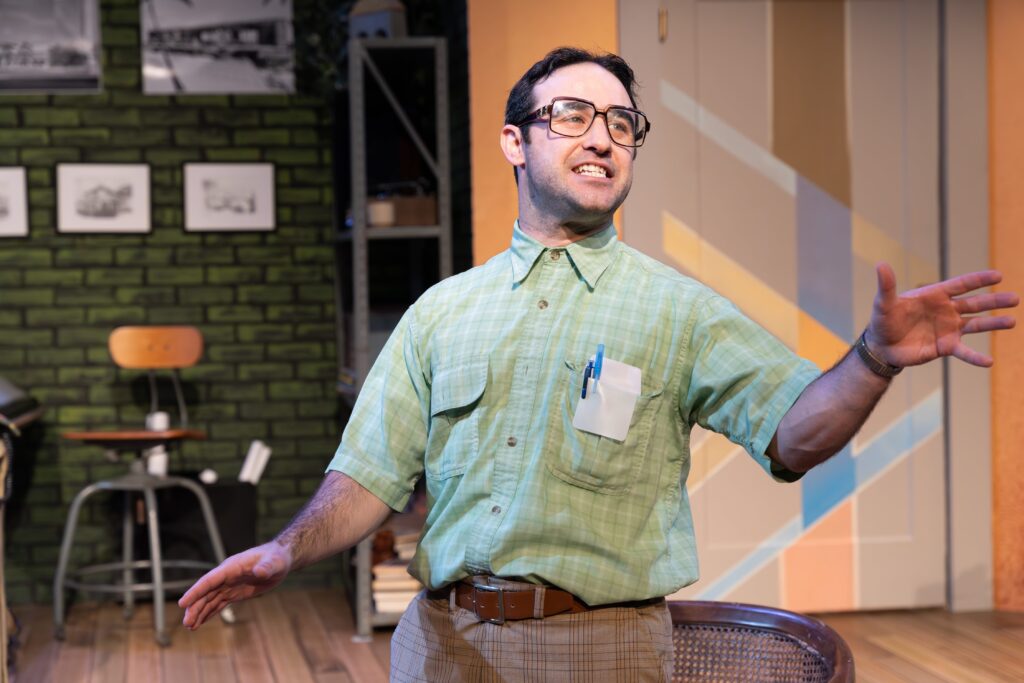
Eager to collect the favor, Rick shows up one night, in the middle of a rather uncomfortable dinner party as Willum is trying to impress his hotel-owner client, who brought his wife, clearly ill at ease, and their rambunctious, spoiled son.
Weird timing, but Willum rolls with it, until he discovers just how peculiar Rick is and how disruptive he can be while staying as his houseguest. Pre-technology boom, the “nerd” definition was slightly different 42 years ago, and Ryan Lawson-Maeske embodies the socially inept, tone-deaf, unrefined guy in a full-throttle performance.
Accentuating the character’s oafishness, Lawson-Maeske affects a nasal, sing-song voice delivering goofy lines in a tactless way, and creating an awkward walk, so that his cadence and gait are funny no matter what he’s saying.
Bacus capably assumes the blander ‘straight’ man role because the eccentric people surrounding him need to standout. As an increasingly frustrated Willum, he feels put-upon, because this is a circus thrust upon him and people around him are demanding action in this escalating tug of war.
His exasperation and agitation grow as The Thing That Wouldn’t Leave wreaks havoc on his life. It all comes to a head when his friends concoct a ridiculous ‘foolproof’ scheme to send Rick on his merry way, and his domineering client is demanding immediate changes to his blueprints.
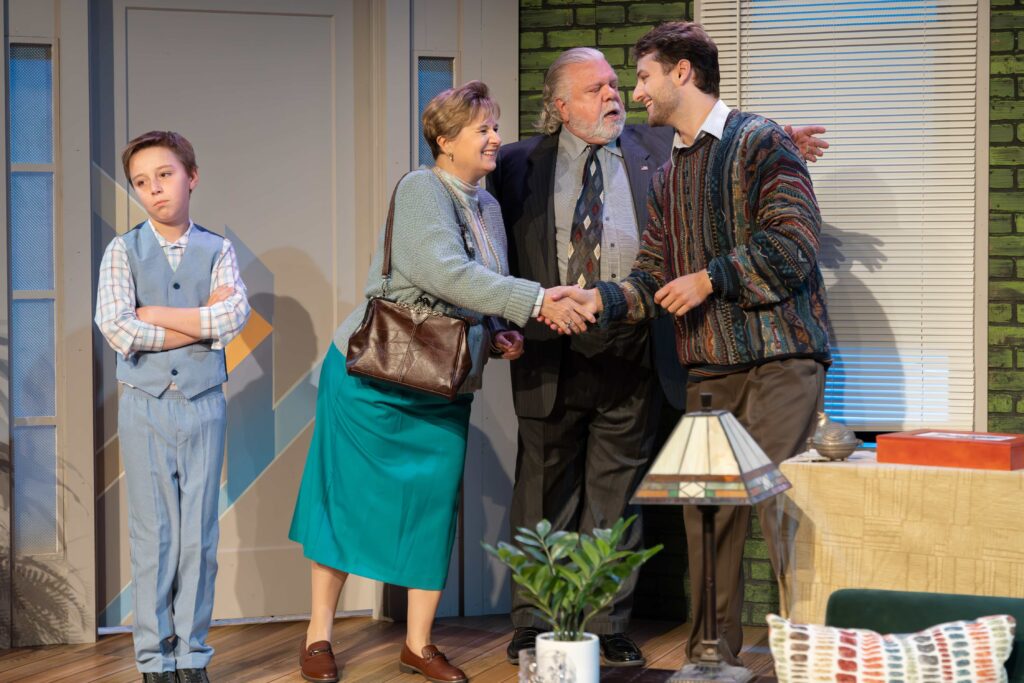
It’s a tour-de-force comedic portrayal by the versatile Lawson-Maeske, who can easily move between comedy and drama on St. Louis stages. He fully commits to the madness, finding the sweet spot so that the growing animosity towards Rick’s obnoxious behaviors isn’t perceived as cruel, being hurtful to a hopeless cause.
Presenting the ‘work’ part of the dilemma is the irritating Waldgrave family, utilizing the synergy of veterans Greg Johnston as the blustery hotel magnate and Leslie Wobbe as his fretful wife, with Kieran Thompson displaying youthful energy as their bratty kid Thor.
Shue wrote two highly regarded comedies before his untimely death at age 39 in a commuter plane crash in 1985 — “The Nerd,” produced first in 1981, and “The Foreigner,” in 1984.
At first glance, the plays seem like tailor-made laugh fests with clever turns of phrase. Shue was gifted with remarkable verbal dexterity, and adds idiosyncratic touches – not just the odd names, but Rick is a factory chalk inspector? Tansy, playing hostess, brings out heaping bowls of three-bean salad and macaroni salad — quirky choices.
But Shue also underlined the human condition in such a way that we can relate. How many times do we need a push in life, that we must get out of our way to move forward?
With this ace cast under the shrewd and sharp-witted direction of Gary Wayne Barker, you expect a madcap romp but may be surprised by the heart the players have mustered, and what it has to say about work-life balance.
The ensemble moves easily around the nondescript apartment set designed by Dunsi Dai, with recognizable retro touches. While that is static, this cast is anything but, and their proficiency in making jokes land is admirable. Their timing is so crisp it doesn’t tip off any twists, either.
And I doubt anyone in the audience will be wanting cottage cheese any time soon.
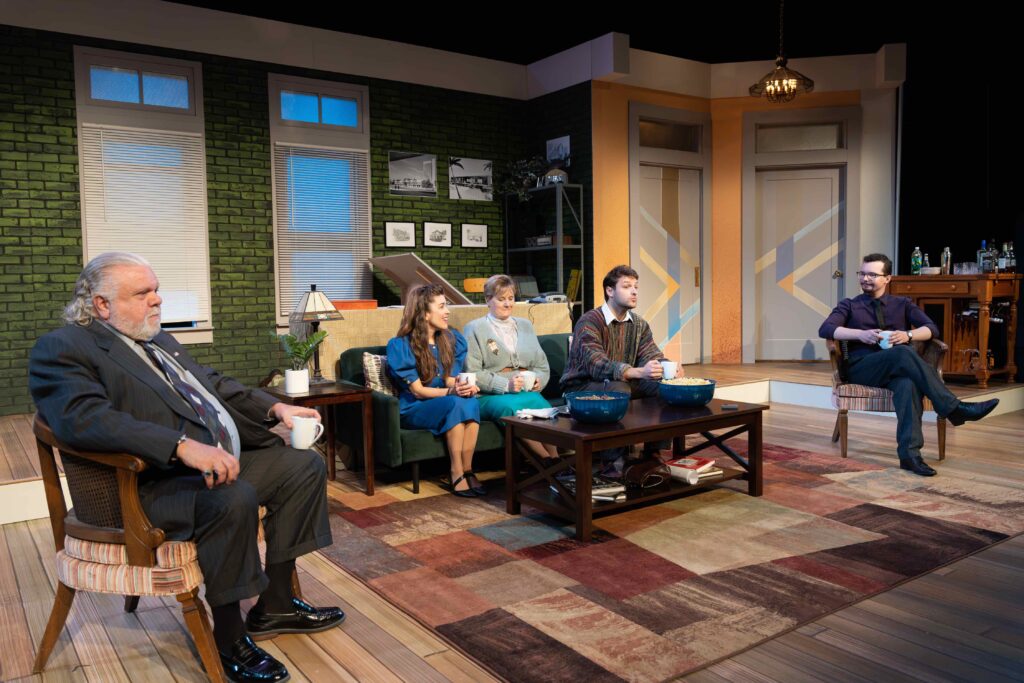
Moonstone Theatre Company presents “The Nerd” July 6 – July 23 on Thursdays through Saturdays at 7:30 p.m. and Sundays at 2 p.m. in the Strauss Black Box Theatre at KPAC, 210 E. Monroe. General admission tickets are $40, with seniors $35 and students $15. For more information, visit moonstonetheatrecompany.com or call MetroTix at 314-534-1111.


Lynn (Zipfel) Venhaus has had a continuous byline in St. Louis metro region publications since 1978. She writes features and news for Belleville News-Democrat and contributes to St. Louis magazine and other publications.
She is a Rotten Tomatoes-approved film critic, currently reviews films for Webster-Kirkwood Times and KTRS Radio, covers entertainment for PopLifeSTL.com and co-hosts podcast PopLifeSTL.com…Presents.
She is a member of Critics Choice Association, where she serves on the women’s and marketing committees; Alliance of Women Film Journalists; and on the board of the St. Louis Film Critics Association. She is a founding and board member of the St. Louis Theater Circle.
She is retired from teaching journalism/media as an adjunct college instructor.

